Truck Grille Mesh - Aluminum vs Stainless Steel vs Plate Steel vs Plastic
When your truck needs a new grille (or a new grille mesh), it’s easy to get overwhelmed with all the options on the market. We’ll help you narrow down your options. One of the first decisions you need to make is the type of material you want used to manufacture your new grille or mesh. To help you reach an educated decision, let’s discuss the 4 most common materials used to build truck grille mesh.
1. Aluminum
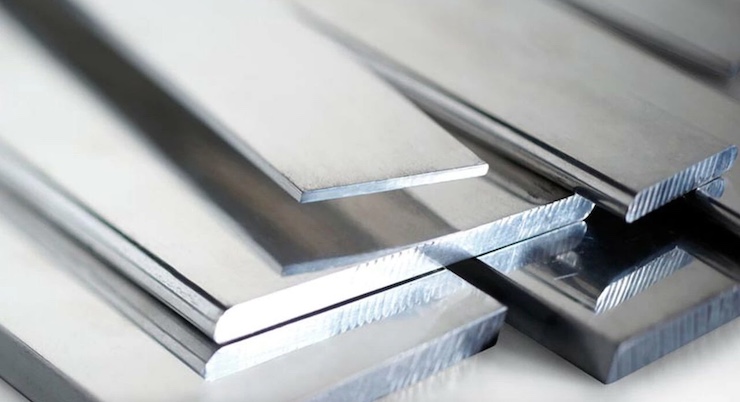
An aluminum grille mesh is a lightweight part. In fact, it's about one third the weight of steel. Aluminum grilles are a popular option because they don't rust. Yet, aluminum is prone to pitting. If you live in an area where a lot of road salt is used, the appearance of an aluminum grille can go downhill in a few short years.
Aluminum grilles have some other drawbacks. They are prone to:
- Dents (due to its lightweight nature)
- Scratches
- Bends and warps (from weight, force, or heat)
- Contamination during the painting process (which keeps the primer and paint from adhering)
Aluminum grilles may look good, but they don't provide as much protection as stainless steel.
2. Stainless Steel
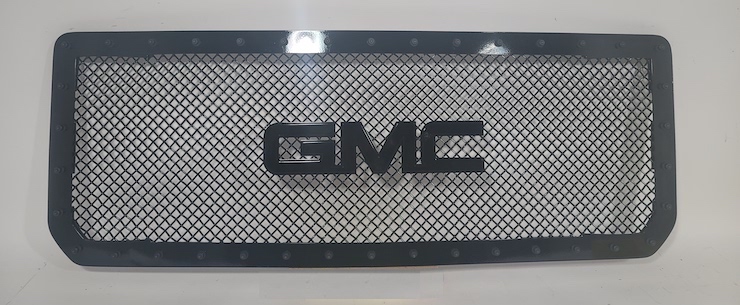
One of the grille’s main functional purposes is to protect the radiator. That’s why it’s important to have a strong grille. When it comes to strength and durability, you can’t go wrong with stainless steel. This metal brings many benefits, including:
- Strength
- Durability
- Resistance to pitting and corrosion
- The ability to look great out of the box and for years after
The only drawback of getting a stainless steel grille mesh is upfront cost. A well built stainless steel mesh may cost a little more than other grilles. Yet, it’s a great investment because stainless steel grilles are stronger and last much longer than grilles made with other materials.
3. Steel Sheet Metal
Poorly protected plate steel grilles are pretty common. Here's a couple good examples:

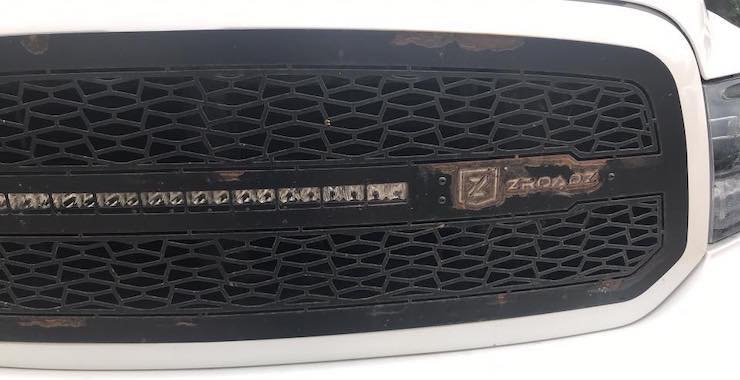
Poorly protected steel with significant deterioration. Images via T-REX Grilles
Steel sheet metal is a thin, relatively lightweight type of steel. For the same thickness, it's stronger than aluminum. It's not a common material for grilles, though, because it's not as practical as other options. Here are some drawbacks of using a sheet metal grille mesh:
- Steel sheet metal is heavier than aluminum of the same thickness.
- Bare steel sheet metal is prone to rust and corrosion. It must be painted or powder coated to prevent corrosion.
- While bare steel sheet metal is inexpensive, it becomes much more expensive when properly painted or powder coated.
- A grille mesh is subject to impacts from gravel and sand. Even with a quality paint or powder coat, the coating will eventually be come damaged enough to start rusting.
4. Plastic
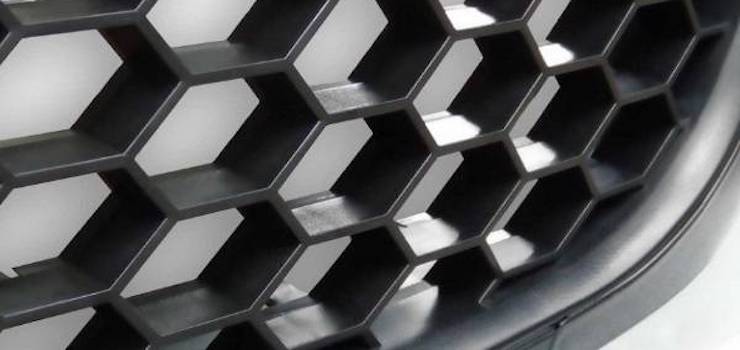
A plastic grille mesh is likely the cheapest option in this list. It has several benefits:
- Lightweight (lighter than aluminum)
- Cheap
- Easy to replace
- Corrosion resistant
You get what you pay for, though. A plastic grille mesh may cost little upfront, but it won't last long. It doesn't provide much (if any) protection. Plastic is very easy to break. Once a plastic grille mesh breaks, the radiator is left vulnerable.
Also, plastic grilles are pretty difficult to paint. If you decide to DIY, the project may turn out looking terrible. And there's no point in hiring a professional to paint a plastic grille mesh.
Royalty Core Is A Leading Brand For Stainless Steel Grilles
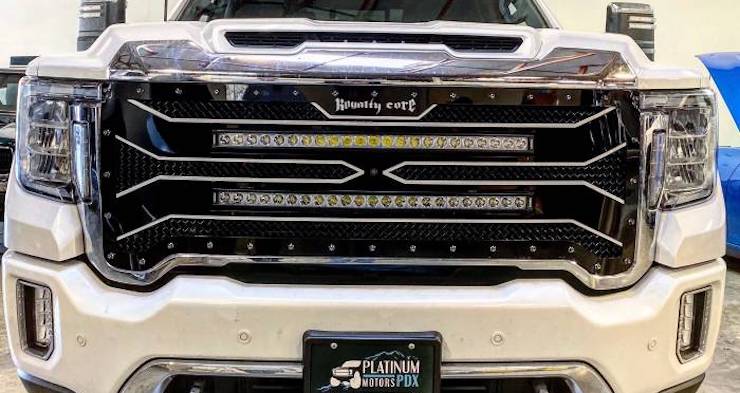
It's clear that stainless steel is the best option. Royalty Core is a leading brand for stainless steel grilles. We make a variety of stainless steel mesh styles, as well. All our mesh styles are optimized for safety and durability. When you order a stainless steel grille from us, you'll get to choose between these mesh styles. You won't only be getting a good looking custom grille, but you'll also get a strong and durable grille mesh.
